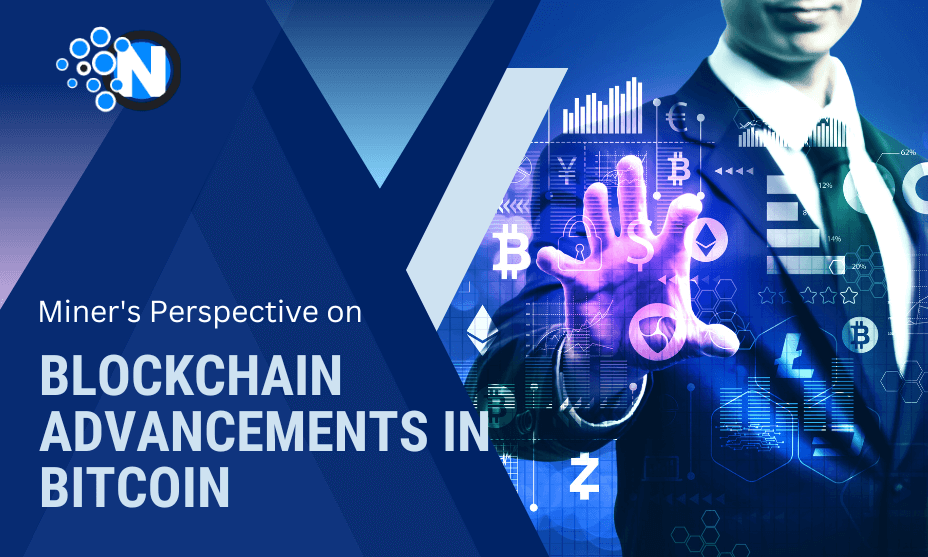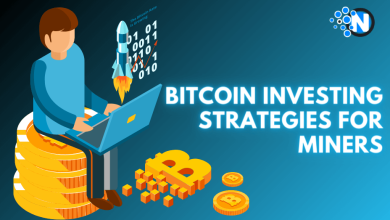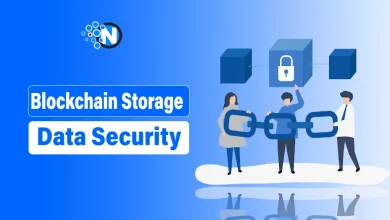Miner’s Perspective on Blockchain Advancements in Bitcoin

In the foundational aspect of the decentralized network, Bitcoin mining serves as the bedrock, entailing the validation of transactions through intricate mathematical problem-solving. The miners relay the computational work to the addition of new blocks in the blockchain, which grants the stability as well as the integrity of the system. Usually, the miners constitute the security pillars of the Bitcoin network. During this process, they authorize transactions and include the transactions in the blockchain, causing the highest degree of impossibility of any changes or falsification to the ledger and strongly supporting system decentralization.
Bitcoin’s homological journey brings out a telling course, most notably in the mining field; therefore, we focus our attention on the technical evolution, hurdles experienced, and Bitcoin’s mining scenario in the future. If you want to learn about investing with education companies, visit https://matrixator.com/.
Evolution of Mining Hardware
Early Days: CPU and GPU Mining
In the beginning stages of Bitcoin, mining was feasible using standard CPUs and GPUs. However, the increasing complexity of cryptographic puzzles led to the need for more powerful hardware.
The ASIC Revolution
The advent of Application-Specific Integrated Circuits (ASICs) marked a revolutionary shift in mining capabilities. ASICs, designed solely for Bitcoin mining, drastically increased computational power, rendering traditional methods obsolete.
Quantum Computing Threats and Precautions
As the theoretical threat of quantum computing looms, the Bitcoin community explores potential vulnerabilities. Precautionary measures are being explored, such as post-quantum cryptographic algorithms, to ensure the resilience of the network.

Mining Pools: Collaborative Power
The Concept of Mining Pools
Mining pools emerged to address the increasing difficulty of solo mining. Miners join forces, combining their computational resources to increase the likelihood of successfully adding blocks and receiving rewards.
Advantages and Challenges for Miners
Mining pool participation offers a consistent but shared reward system. While reducing variance, miners face challenges such as centralization concerns and potential conflicts within the pool.
The Role of Mining Pools in Network Security
Despite concerns, mining pools enhance network security by providing a more stable and predictable hash rate. Their collaborative efforts contribute to a more distributed and secure blockchain.
Energy Consumption Debate
Unraveling the Energy Consumption Myth
It is criticized as the largest consumer of energy on the criterion that people perceive it as the biggest consumer of energy. On the other hand, the energy mix consists of a well-balanced set of elements, which is just a small part of the consensus mechanism—also known as proof-of work.
Initiatives for Sustainable Mining Practices
Work abides the fact that environment challenges associated with mining is a challenge, to tackle this issue mitigative measures are implemented. While some miners are endeavouring to use renewables, there is clearly an identified route for efficient and environmental mining, delivering a green future for Bitcoin mining.
Future Prospects for Eco-Friendly Mining
The research is constantly moving from a sustainable onward variation in view of reducing the carbon footprint in mining. As for energy-efficient machines, balance extraction practices, or renewable power engineering, the future is going to be promising.
Forks and Consensus Mechanisms
Understanding Bitcoin Forks
Creation or implementation of Bitcoin forks for both hard and soft ones can lead to certain consequences regarding miners. Such a comprehensive grasp of those consequences along with the prospects and challenges inherent in the dynamic process of evolution is critical to navigate blockchain development.
Impact on Miners: Hard Forks vs. Soft Forks
Hard forks present more significant challenges, as they may result in a split blockchain. Miners must carefully navigate these situations to ensure the continuity and security of their mining operations.
The Role of Consensus Mechanisms in Mining
Consensus mechanisms are fundamental to the security of blockchain networks. Bitcoin miners play a vital role in upholding these mechanisms, ensuring the decentralized nature and integrity of the entire system.
Security Challenges and Solutions
Threats to Miner Security
Miners face various security threats, including malicious attacks and attempts to manipulate the blockchain. Understanding these threats is crucial for implementing effective security measures.
Mining Pools and 51% Attacks
The risk of a 51% attack, where a single entity controls the majority of the network’s hash rate, poses a threat to decentralization. Mining pools must implement safeguards to prevent such scenarios.
Advancements in Mining Security Protocols
Ongoing advancements in security protocols aim to fortify the resilience of mining operations. From enhanced encryption to sophisticated authentication methods, these measures protect miners from evolving threats.
Regulatory Landscape for Miners
Global Perspectives on Mining Regulations
Mining regulations vary globally, posing challenges for miners navigating different legal frameworks. Understanding and adapting to these regulations is crucial for the sustainability and legality of mining operations.
Challenges Faced by Miners in Different Jurisdictions
Miners encounter diverse challenges based on the regulatory landscape of their operating jurisdictions. These challenges range from licensing requirements to tax implications and necessitate a nuanced approach.
The Need for Balanced Regulatory Frameworks
A balanced regulatory framework is essential to foster growth within the mining sector. Striking a balance between security and flexibility ensures a conducive environment for miners to thrive.
Future Trends and Technological Advancements
Lightning Network and Off-Chain Scaling
Technological developments, such as the Lightning Network, enable off-chain scaling solutions. These advancements aim to enhance transaction throughput and reduce congestion on the main blockchain.
Taproot Upgrade and Smart Contracts
The Taproot upgrade introduces improvements to Bitcoin’s scripting language, enabling more complex and privacy-focused smart contracts. Miners adapting to these changes contribute to the network’s evolution.
Decentralized Finance (DeFi) and its Implications for Miners
The rise of decentralized finance introduces new possibilities for miners to participate in financial ecosystems built on blockchain. Understanding these opportunities is crucial for miners navigating the evolving landscape.
Conclusion
Bitcoin miners are key players that keep the blockchain and continue to grow. The tireless endeavour of the miners to reinforce the network, compass direction in technology, and manage regulatory complexities all serve as a driving factor behind the Bitcoin mining journey. While Bitcoin’s growth shows no signs of slowing, miners remain in the pioneering role at the forefront, rapidly addressing technological shifts and reinforcing the blockchain’s resilience. The future of Bitcoin mining foretells an exciting era and vicious struggles. As miners on the emerging developments move, interact with the complicated regulations, and focus on assurance, they represent the special function of the Bitcoin system staying and decentralization.




